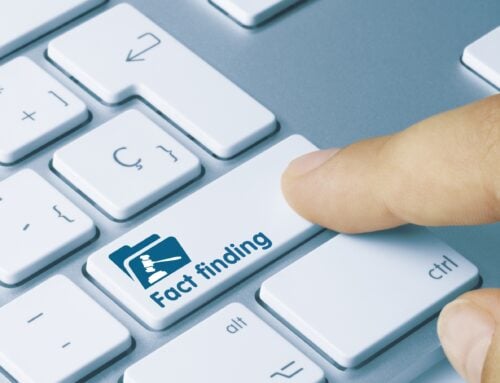 Getting and maintaining public trust is a critical component of business. So when a situation arises that can impact that trust, the phone at rings. Sometimes it’s an attorney, sometimes it is a CEO or CFO, and sometimes no one except the business owner can make the call.
Getting and maintaining public trust is a critical component of business. So when a situation arises that can impact that trust, the phone at rings. Sometimes it’s an attorney, sometimes it is a CEO or CFO, and sometimes no one except the business owner can make the call.
Recently in Indianapolis a CFO of a large business was arrested for theft. Big theft. Not only was he accuse of diverted company funds to his own personal use, it was believed that he had used funds from a client at a former place of employment to cover the funds taken from his current employer.
It is a tangled web that is certain, in this case and in many others. Which is the reason why certified computer examiners and forensic financial examiners are called in to investigate.
Some people think that anyone can just “look through” the content on a computer in situations like this, but that just isn’t the case.
First, you need a computer forensic investigator who is knowledgeable and skilled in computer forensic electronic discovery. There are two primary reasons for that. One is that digital forensics requires a level of knowledge in computer forensics and the use of data mining software. With that, the computer forensic investigator is able to find and extract data that the perpetrator tried to delete and destroy. In a successful forensic data recovery, the forensic computer specialist is able to dig deep. And that brings us to reason No. 2.
There is a detailed forensic evidence protocol that must be followed in order for the evidence found in a computer forensic electronic discovery to be admissible in a court of law. And then, the forensic computer analyst becomes the computer forensic expert witness in court. In order for the evidence to be admitted, you need both – the data recovered and the expert to testify.
A forensic investigator, whether a computer forensic specialist or a forensic financial analyst, has three skill sets they bring to bear in cases:
- Knowledge in investigation. They know what to look for and how to follow the threads and leads found in the data.
- Knowledge in the industry. I am not talking the industry they are investigating. I am saying that the computer forensics consultant knows the forensics technology inside and out. Our computer forensic investigators stay current on the cutting edge of new technology to ferret out data and the truth. Financial analysts are experts in accounting and finance. They know how money moves in, though and around business and they know the laws and regulations that apply to it.
- Knowledge in the legal protocols. These experts know what is required to maintain the integrity of evidence and protect the rights of every person and entity involved in the data collected. Following the letter of the law protects everyone.
There can be nothing more damaging for business than the announcement of wrongdoing by employees, especially high ranking employees. But handling the resolution of the situation can be the biggest element of maintaining trust. Knowing that illegal activity will be ferreted out and not tolerated means that watchdogs are on guard.
Although we don’t like to admit it, there are lots of people who commit crimes. We do our best to stand behind business owners, attorneys and the authorities who prove it and hold criminals accountable. Forensics is one of the most important tools we have today. That is why has committed to staying on the bleeding edge of computer forensic innovation from the very beginning.
-Brenda McGinley, CEO, All in Investigations, All in Investigations





